Nov 23, 2018
Raptors sinking resources into sleep education
Josh Lewenberg takes an in-depth look at how the Toronto Raptors are using sleep education to optimize their players' rest over the grind of a hectic NBA season.
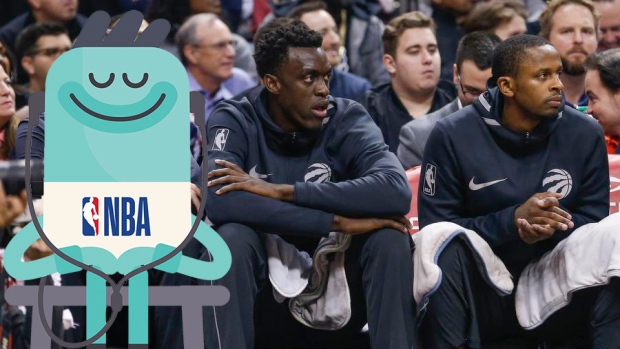
It was the evening of May 4, 2014 – Game 7 of the Raptors’ memorable first-round playoff series against the Brooklyn Nets. Paul Pierce had just blocked Kyle Lowry’s last-second floater, bringing an end to Toronto’s improbable run and first postseason appearance in six years.
Moments after the buzzer sounded, after DeMar DeRozan famously peeled Lowry off the Air Canada Centre court, Jonas Valanciunas sat in front of his locker and reflected on what went wrong. The 21-year-old sophomore centre had recorded a double-double in each of his first three playoff contests, but his impact faded as the series went on, culminating in one of the worst games he’s ever played. Valanciunas missed four of his five shots and scored three points in 27 minutes that afternoon. The Raptors were minus-23 with him on the floor, plus-22 with him off it.
The seven-foot Lithuanian didn’t want to make excuses, but after some prodding he admitted that he hadn’t been sleeping well. The biggest takeaway from his first postseason experience, Valanciunas told reporters that day, was the importance of managing his emotions and getting adequate rest ahead of big games.
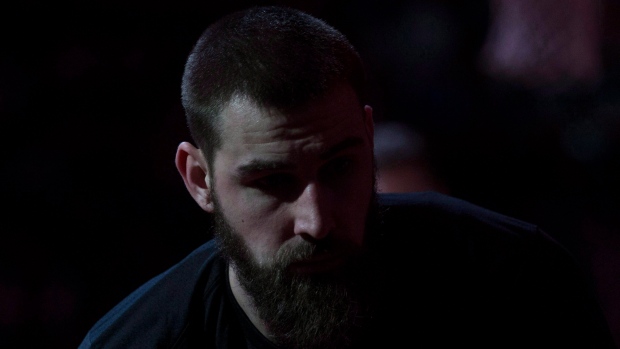
There are so many different variables that factor into a player’s performance on any given night, ranging from the tangible things we’re able to see and evaluate – like whether a player is in rhythm or has a favourable matchup – to details that are far more personal, and therefore harder to quantify.
Is the player getting enough nutrients from their diet? Are they dealing with stress away from the game? Perhaps they’re playing with a minor injury that’s affecting them on the court.
But the most obvious thing is the one that’s often overlooked: Are they getting enough sleep?
That’s not limited to NBA players and professional athletes. Sleep is essential for each of us to get the most out of our bodies and our minds, regardless of profession or lifestyle. It’s also something that’s easy to neglect.
Those who make their living in sport are on the extreme end of both of these spectrums. The more you ask of your body, the more important getting optimal rest becomes. But the lifestyle of an athlete – late games, early-morning workouts, the pressure and responsibility that come with competing under the brightest of spotlights – isn’t always conducive to getting a proper night’s sleep.
Athletes need sleep to perform at their best. It’s not exactly a novel concept, but it’s one many of them take for granted. Even once they gain more experience and begin to make the association between optimal rest and playing well, there are many questions they don’t have the answers to.
How much is enough sleep? How do you find the time for sleep in your busy schedule? How can you optimize the sleep you do get?
The Raptors are one of the many teams around the NBA and across pro sports that have come around to the importance of educating their players on the value of getting good shut-eye and the pitfalls they may encounter if they don’t.
With almost three quarters of the roster training in Los Angeles by the first week of August this past summer, the Raptors put most of their players through a four-day sleep class.
Set up by director of sports science Alex McKechnie and the team’s highly regarded medical staff, each session ran for about a half hour. The course also included a second week focusing on nutritional tips. The goal was to give the players more information about how they should be getting rest and taking care of their bodies.
As an organization, the Raptors have been studying the impact of sleep for years, and they’ve had an internal program in place for a half-decade. They monitor how much their players sleep and have always made pertinent information available to them. It also influences many of the travel decisions they make – what time they fly, when they stay over in a city instead of taking the red eye, etc. Still, this was the first time the team has ever organized a formal seminar on sleep.
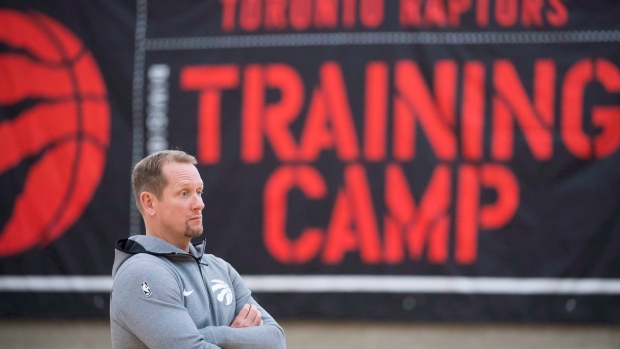
“I haven’t seen it as in-depth as this year,” said Nick Nurse, who is in his first season as head coach after spending the previous five with Toronto as an assistant. “I think this was the A+ program. It was a really good one.”
The Raptors aren’t alone in that regard. More and more, teams are investing time and resources into studying the sport at a different level. They are not just analyzing on-court data, they’re looking even deeper and examining the many factors that contribute to a player’s overall performance.
A couple decades ago, the idea of lecturing professional athletes on their sleeping habits probably would have been laughed off, by players and teams alike. Now, with more information available than ever before, it would be silly not to try to gain every competitive advantage possible.
For most of Toronto’s youngest players – all of who attended the two-week course in L.A. – this is the norm, but some of the team’s veterans have been around long enough to witness the shift in philosophy.
Danny Green, who had just been acquired from the Spurs a few weeks earlier, was working out with his new team in L.A. and sat in on the meetings. That was a first for him, the 10-year vet admitted, but he was just as attentive as anyone else in the room.
“Sleep is a big part of recovery,” said the 31-year-old guard. “That’s why guys are playing so much longer, so much more effective for longer. If you want to continue to do that, be one of those guys, you’ve gotta sleep well and take care of your body. That’s why you see guys like LeBron [James] playing at a MVP level 15 years in.”
“It’s become a big thing around the league,” said C.J. Miles, the Raptors’ most experienced player, who broke into the NBA 13 years ago. “It’s night and day [from when I started my career]. Before, it was just like training and recovery and the stuff that you do. Now it’s so advanced. When I first came in it was at the end of that kinda old-school era. So it was just about being strong, big, like lifting weights, and throwing the weights around. Slowly I saw the league turning to Pilates and yoga and flexibility.”
“Obviously sleep is important, especially for us [with] the toll we put on our bodies throughout the season. The rejuvenation you get from it is just irreplaceable. You can do all the treatments and ice and all that, but if you get three hours of sleep all that other stuff is in vain.”
Brandon Marcello is a high-performance expert specializing in several areas related to health, fitness and wellness, including sleep education. The Raptors brought him in as a consultant to speak at and run their off-season sleep class. Based in Sarasota, Fla., Marcello travels around the globe working with pro sports teams – the Atlanta Braves and Oakland Raiders, among others – college and Olympic athletes and even the U.S. Special Forces.
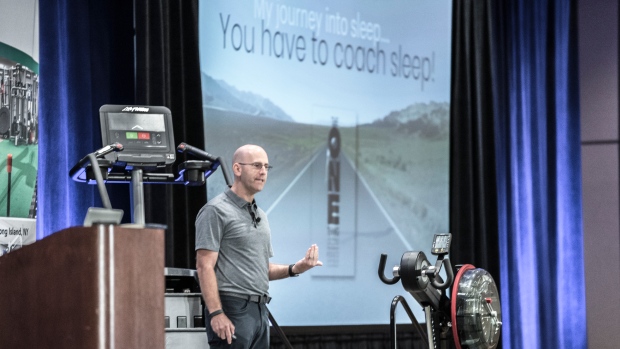
With more than two decades of experience in the business, he’s also seen the rise of modern-day thinking in athletics. Educating players and teams on the importance of sleep has become a much bigger part of his job over the last few years.
“Twenty years ago nobody was talking about this,” Marcello told TSN. “So what it came down to is who could play the best with crappy sleep and crappy nutrition. That’s really what it came down to, a level playing field. But now people are paying attention to sleep. People are focusing on it – a lot of the older athletes especially. Some of my clients are like, ‘How can I play one more year? How can I play two more years? How can I stop this young guy from taking my spot? Is there anything I can do?’ And the first place I start is with sleep. How are you sleeping? It’s no longer a level playing field because people are thinking about it, and if you’re not thinking about it and other people are, you’re now at a competitive disadvantage, regardless of your talent.”
How much sleep do you need? Marcello says that’s the most common question he gets during and after lectures, and the answer often disappoints people; there is no universal number. It varies depending on the person. Some need more. Some need less.
The methodology for figuring out the amount of sleep each individual needs isn’t especially scientific either. Like a lot of other things, it comes down to trial and error. Pick an arbitrary number, say, nine. Get nine hours of sleep and then see how you feel the next day. If you feel good – alert and with ample energy in the afternoon – try getting eight and a half hours the following night. Still feeling good? Try eight hours. Then, if you feel drowsy after lunch the next day, you know your number is eight and a half. It’s not sexy, Marcello says, but it works.
According to Marcello’s research, most athletes tend to underreport the amount of sleep they need. That’s one of the ways these sessions can help players learn more about their bodies. Many come in and say they need seven hours but leave realizing they actually need eight, eight and a half or maybe more.
“Everybody’s different,” Marcello said. “Some athletes are more in tune to their bodies than others. It depends on who they are and where they are and how much sleep education that they’ve had.”
One of the things Marcello stresses is the importance of repaying sleep debt. Meaning, if you need eight hours per night and you’re only able to get six, you need to make up those two hours somewhere or you’re probably going to feel it, at least if your lack of sleep persists. Maybe that means going to bed an hour earlier the next night or sleeping an hour longer the following morning, or maybe you can squeeze in a short nap sometime in the afternoon. The game-day nap is a ritual many NBA players swear by. It’s not quite as easy as saying six hours in the evening plus a two-hour nap equals an eight-hour night sleep, but a quick nap is a helpful tool for athletes to catch up on some rest and feel refreshed for that night’s game.

For NBA players, maximizing rest is especially crucial just ahead of busy or stressful times of the year, such as the start of a new season, a long road trip or the playoffs. “If you’re going into a travel period or a season with tons of sleep debt, that’s a problem,” Marcello says. It’s not just about getting enough sleep, it’s important to get good sleep. Quantity and quality. Marcello calls it “sleep hygiene,” comparing it to your dental health. The idea being, how you brush your teeth is every bit as important as how often you brush.
“You don’t just wake up today and say, ‘You know what? I’m just going to do bottom teeth today,” Marcello said. “So really it’s a matter of the same approach you take with dental hygiene because there are some consequences. There’s a cost of not doing your dental hygiene and sleep is the same way. There’s a certain cost of doing business if you choose not to do it.
There are a number of ways to ensure you’re getting quality sleep. Marcello recommends sleeping in a dark room that is cool in temperature. That’s probably common sense, but another thing he emphasizes is something that almost nobody abides by in 2018: stop staring at your screens an hour before going to bed. That means turning off the television and putting away your cell phone and laptop. Needless to say, that’s been a big adjustment for the Raptors’ millennials.
“I think I’m learning,” said 24-year-old forward Pascal Siakam. “My first couple years, I barely slept, just because I was always doing something on my phone. But now that I’m getting better and more experienced I understand that the more I sleep the better I perform. So I try my best to get as much sleep as I can. Just shut everything off or read a little bit.”
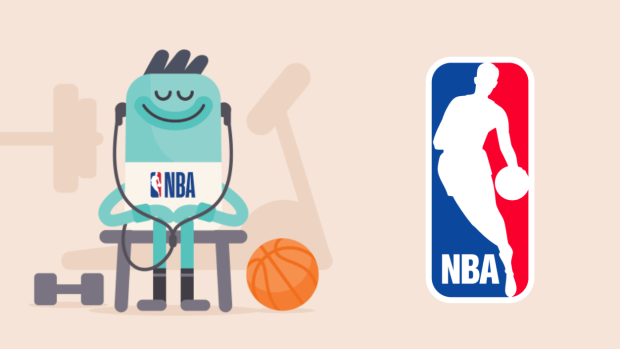
Still, technology isn’t all bad when it comes to sleep. Miles uses a meditation application on his phone called Headspace to help him relax before going to bed. Green, who doesn’t turn 32 until June, has already asked his family for an early birthday present: Bose noise-masking earbuds specifically designed for sleep, which he heard about during the off-season sleep class. Nurse and some of the players wear a sleep-tracking wristband to monitor the amount of sleep they get and how often they wake up during the night.
The biggest thing Marcello stresses is routine. The body craves consistency, so find what works for you and stick to it as much as possible. Of course, that’s easier said than done for most people, especially athletes.
“It’s always hard,” Siakam said. “Being an athlete and playing games and then at night, especially on game days, to play at such a high level and then you go to eat late, at 9 or 10 [p.m.], it’s so hard to go to sleep. I don’t know. How much sleep are you going to get?”
“Routine is a funny thing to say,” Valanciunas said. “You’ve got a lot of things going on. You’re not just alone and it’s not all about you. You’ve got kids, you’ve got a wife, you’ve got problems, you’ve got stress, you’ve got things to do. One day maybe you do something and you go to sleep later, [the next day] earlier. It depends on a lot of stuff. It’s not just you. The guys that live alone can maybe get more time for themselves but you’ve got to take care of family too.”
Almost four years after that Game 7 loss to Brooklyn, Valanciunas is older and wiser but he still has trouble sleeping on occasion. In the time that’s gone by since his first postseason, JV, now 26, has gotten married and had two kids. Even though he’s adjusted to life in the NBA, sleep isn’t necessarily easier to come by. He’s had to find balance and compromise, taking advantage of opportunities to rest where and when they come.
“I mean, it’s on you to handle that,” he said. “The older you get, your mind gets more experienced. And now I have kids. My wife is doing a great job helping me to sleep. Sometimes I even feel bad about that, she’s hustling all night, waking up four or five times a night, and I’m just sleeping. But that’s the job. I get paid to perform and sleep is really important for you to perform well.”
“I noticed this myself, over-sleeping is not good either. You’ve gotta find the right amount, not too much, not too short. Naps during the day [are good], but sometimes over-napping just makes you feel like a grizzly bear. You want to eat and go back to sleep.”
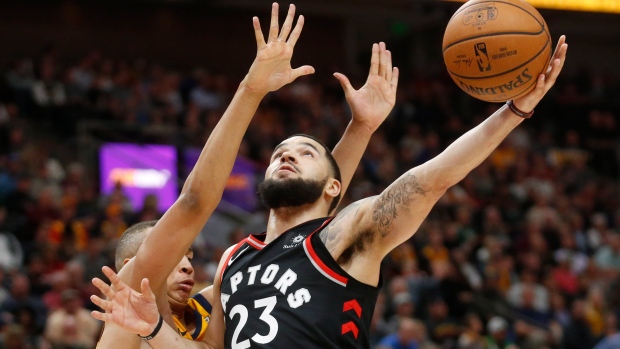
Like Valanciunas, Miles and Fred VanVleet both have young children, which, as any parent can sympathize with, has a way of complicating your sleeping schedule. Miles has always been a night owl. “I have a very active mind,” the 31-year-old says, so he’s up until 3:30 or 4:00 in the morning sometimes replaying that night’s game in his head. He tries to make up sleep during the day, napping when his one-year-old daughter Ava is asleep. “I’ve gotten better at it, finding ways,” he said.
First-time fatherhood has also forced VanVleet to be more creative with his schedule.
“Since I got in the league I started sleeping a lot more [than I used to],” the 24-year-old point guard said. “And obviously now with an eight-month-old daughter I have to try to find extreme ways to get sleep. So my sleep schedule has been much different.”
On the other hand there’s Delon Wright, who’s also not ashamed to admit he’s passionate about his sleep, only he’s found a lot more time to get shut-eye since entering the league, at least compared to his days in college.
“I sleep way more [than I did in college], not having to go to school,” Wright said. “I’ve always loved to take naps. It’s just when I got to Utah I couldn’t do it because I’d have study hall or practice in the middle of the day, so it was impossible. Everybody knows I love to sleep. My friends, they know I sleep all the time. I think I have to do a better job of sleeping at night, but during the day I take long naps.”
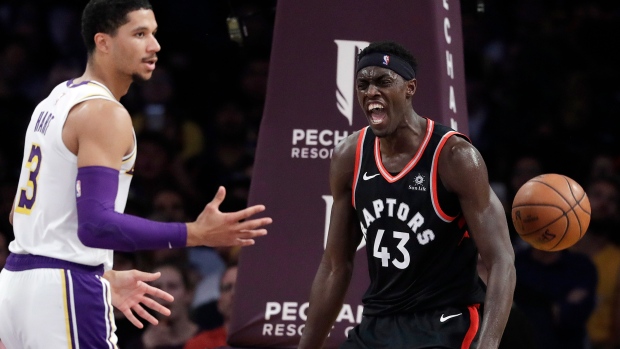
Now a vet himself, Valanciunas has a better grasp on how sleep, or a lack thereof, impacts his body. He also knows it’s a complicated relationship. Just because you sleep poorly one night does not necessarily mean you’re going to play poorly the next day.
“Sometimes when you’re not sleeping it’s even better,” Valanciunas said. “You feel like extra adrenaline. But then your body’s breaking down. It’s not sustainable, for sure. Injury-wise, getting sick, immune system, stuff like that.”
“I think in the long run you can tell,” said Siakam. “Sometimes it’s hard because some days you’re going to sleep two hours and come out and have a killer game, but you can’t do it for two more nights, you know what I’m saying? It’s not sustainable. But you can do it. Some people will do it, but it’s like, how long are you going to do it for? But I feel like when you sleep more you’re more rested and I think you perform better.”
It’s a mixed bag, as Marcello puts it. Some of the players he’s worked with have transformed their careers just by altering their sleep habits. They’re attentive, they see the value in improving their lifestyle, so they make the necessary changes and it works. Other players just don’t care, and for some it almost doesn’t matter.
Although it’s certainly not the norm, there are outliers out there; the player that sleeps poorly and eats poorly, doesn’t take care of their body, and, against all odds, still manages to play at an all-star level almost every night. “They do exist,” Marcello said, “but it can’t be everyone.” Most aren’t that lucky.
“Sleep is something to be taken seriously,” Marcello said. “This stuff doesn’t guarantee you’re going to have an amazing career, be an all-star, but it certainly stacks the odds in your favour of having a successful performance, and that’s really what we’re trying to do. That’s what I try to do with anybody I work with, is help them stack the odds in the favour of performing on their terms.”

